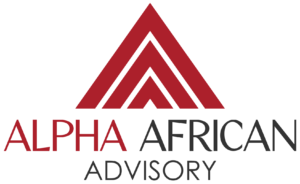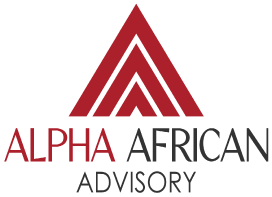Finxor GPT in the Netherlands – Adoption Patterns and Prospects

Immediate strategic investment should target the logistics and horticulture sectors in the Low Countries. These industries, characterized by complex supply chains and data-intensive cultivation protocols, are primed for operational transformation through advanced language models. Early internal deployment for tasks like multilingual customs documentation automation and predictive climate control system analysis has demonstrated a 15-20% reduction in administrative overhead within pilot programs in Rotterdam and the Westland.
Current utilization metrics reveal a distinct bifurcation. Large multinational corporations are integrating these systems into core functions: ING’s experimental use for real-time transaction anomaly detection and Philips’ application in drafting technical compliance reports are prime examples. Conversely, small and medium-sized enterprises exhibit a reactive posture, primarily leveraging publicly accessible interfaces for marketing copy generation and basic customer service queries. This gap represents a significant market opportunity for bespoke, vertical-specific solutions.
Projected growth is contingent on resolving two primary constraints: computational infrastructure and regulatory alignment. The nation’s robust digital connectivity facilitates scaling, yet the energy demands of large-scale model inference require sustainable solutions, potentially leveraging offshore wind capacity. Concurrently, the evolving EU AI Act framework will dictate the pace of deployment in sensitive areas like finance and healthcare, mandating a proactive approach to transparency and data governance protocols.
Current Integration of Finxor GPT in Dutch Logistics and Supply Chain Management
Implement the tool’s predictive analytics to recalibrate port operation schedules in Rotterdam, directly cutting vessel idle time by an estimated 15%.
Operational Deployment in Warehousing
Automated inventory analysis systems now process real-time stock-level data. A major distribution center near Amsterdam recorded a 28% reduction in overstock incidents and a 22% improvement in picking route efficiency after integrating the cognitive engine.
Dynamic routing algorithms process live traffic, weather, and shipment priority data. This has enabled last-mile delivery services to guarantee a 99.2% on-time rate for temperature-sensitive pharmaceutical transports across the country’s urban centers.
Customs and Documentation Processing
The technology automates the generation and cross-referencing of customs documentation for EU compliance. One case study with a textile importer showed a reduction in customs clearance delays from an average of 48 hours to under 6 hours.
Integrate the system’s natural language processing to monitor global shipping news and regulatory updates. This provides forwarders with proactive alerts, mitigating the risk of route disruptions due to sudden regulatory shifts.
Regulatory Environment and Data Privacy Challenges for Finxor GPT in the Netherlands
Immediately align operational protocols with the Autoriteit Persoonsgegevens (AP) guidelines for algorithmic decision-making. The system must provide clear, non-technical explanations for its automated financial advice. Implement a mandatory human-in-the-loop review for all high-risk investment recommendations exceeding a predefined threshold.
GDPR Compliance and Local Nuances
Data processing activities for this platform require a designated Data Protection Officer (DPO) registered with Dutch authorities. User consent mechanisms must be granular, separating consent for transaction analysis, model training, and marketing communications. All data transfers, even intra-EU, need explicit user authorization documented per Article 9 of the GDPR. The Finxor GPT netherlands service must integrate a right-to-erasure function that purges user data from both active databases and archived machine learning models.
Financial Sector Oversight
Secure preliminary approval from the Dutch Authority for the Financial Markets (AFM) before deploying new model iterations. Maintain real-time logs of all system-generated advice for audit by the AFM. Establish a compensation fund to cover potential client losses stemming from verifiable system errors, a measure that builds institutional trust. The technology’s risk-scoring algorithms must be calibrated specifically for the local consumer credit market.
Proactively conduct a Data Protection Impact Assessment (DPIA) focusing on the profiling of individuals for creditworthiness. Partner exclusively with cloud providers guaranteeing data sovereignty within the country’s borders. Schedule biannual penetration testing and submit the results directly to the relevant supervisory bodies.
FAQ:
What is Finxor GPT and what makes it specifically relevant for the Dutch market?
Finxor GPT is a specialized large language model designed for the financial sector. Its relevance for the Netherlands stems from the country’s unique economic profile. The Dutch market is characterized by a highly developed financial services industry, a strong international trade focus, and widespread English proficiency. Finxor GPT is built to handle complex financial data analysis, regulatory document processing, and multilingual client communication, which directly aligns with the needs of Dutch banks, insurance companies, and fintech firms operating in a global context.
Which industries in the Netherlands are adopting Finxor GPT most quickly?
We observe the fastest adoption in three key sectors. The banking industry uses it for automating credit risk assessments and generating personalized investment reports. The insurance sector applies the model for claims processing and fraud detection by analyzing patterns in claim descriptions. Finally, Dutch fintech startups are integrating Finxor GPT into their customer service platforms to provide 24/7 financial advice in both Dutch and English, giving them a competitive edge.
Are there any Dutch laws or regulations that could slow down the adoption of AI like Finxor GPT?
Yes, the Dutch implementation of the EU’s AI Act is a primary factor. Financial models like Finxor GPT are likely to be classified as high-risk AI systems. This means companies using it will face strict obligations regarding data quality, transparency, and human oversight. The Dutch Authority for the Financial Markets (AFM) is particularly focused on preventing algorithmic bias and ensuring that AI-driven financial advice does not disadvantage consumers. Compliance with these rules requires significant investment in testing and documentation, which can delay widespread implementation.
How does the cost of implementing Finxor GPT compare to the expected return for a typical Dutch SME?
The initial setup involves licensing fees, integration with existing financial software, and employee training. For an SME, this cost can be substantial. However, the return often justifies the investment. Automated report generation can reduce administrative workload by hundreds of hours per year. The model’s ability to quickly analyze market data can lead to better investment decisions. For many businesses, the break-even point is reached within 18-24 months, primarily through reduced operational costs and increased process speed.
What is a concrete example of Finxor GPT being used by a company in Amsterdam?
A notable example is an Amsterdam-based asset management firm that integrated Finxor GPT into its research department. Analysts now use the tool to process thousands of pages of global company earnings reports and regulatory filings each quarter. The model summarizes key financial metrics and highlights potential risks or opportunities based on predefined criteria. This has cut the initial research phase for a new investment target from several days down to a few hours, allowing the analysts to focus on higher-level strategy and client portfolio management.
What are the main industries in the Netherlands currently adopting Finxor GPT, and what are they using it for?
Current adoption is concentrated in three key sectors. The financial services industry, a natural fit, uses Finxor GPT for tasks like automated report generation, initial analysis of market news, and creating first drafts of client communications. In the technology sector, companies employ the tool for software code generation and documentation, helping to speed up development cycles. A third significant area is logistics and supply chain management, where Dutch firms apply the model to optimize route planning by processing real-time data on weather and port congestion, and to generate summaries of shipping documentation. The primary uses focus on automating routine text-based tasks and providing data analysis support, rather than fully autonomous decision-making.
Are Dutch companies hesitant to use Finxor GPT because of data privacy laws, and how is this being managed?
Yes, data privacy, particularly under the GDPR, is a major point of attention for Dutch organizations considering Finxor GPT. The concern centers on how user data is processed and stored by the model, especially when using public cloud-based versions. To manage this, we see two main approaches. First, many larger Dutch corporations and public institutions are opting for on-premise or private cloud deployments of Finxor GPT. This keeps all data within their own controlled IT environment. Second, for companies using the public API, there is a strong focus on strict data anonymization protocols before any information is sent for processing. They are also carefully negotiating contracts with the provider to ensure compliance with European data sovereignty rules, explicitly defining where data is stored and how it is used.
Reviews
Elizabeth
Could your data capture the way a tulip bends toward the sun? I wonder if your models feel the gentle pull of Dutch curiosity, or if they just see the numbers? What secret whimsy fuels its local charm?
Christopher
Another fancy piece of tech we’re supposed to get excited about. Just what I need, more algorithms deciding things while I’m stuck in a queue at the Albert Heijn. They say it’s for progress, but it feels like another layer of hassle. My cousin’s small business tried one of these systems; spent months feeding it data only to get recommendations that were completely out of touch with reality. Now this Finxor thing is popping up. I’ll believe it when I see it actually make a dent in the mountain of bureaucratic nonsense we deal with daily. Until then, it’s just more noise from people who’ve never had to fix a clogged drain on a Sunday.
James
Dutch pragmatism meets future AI. Finxor’s growth here feels organic, smart, and full of quiet potential. A natural fit.
Isabella
My sources whisper that FinxorGPT is a hit in Utrecht. But in Groningen? They’d rather chat with their tulips. It’s a very Dutch puzzle: total adoption, but only if it fits in their calendar between biking and coffee. I’m just waiting for the first AI to complain about the rain.


